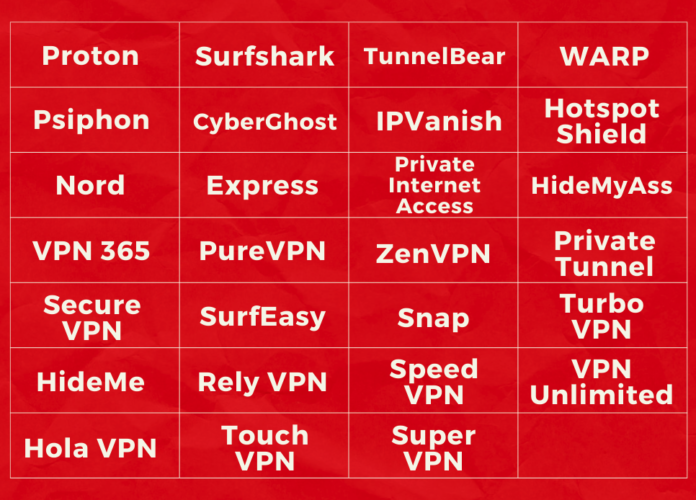Turkey has expanded its crackdown on internet access by banning 27 popular Virtual Private Network (VPN) services, according to the Freedom of Expression Association.
The list of banned VPN services comprises Proton, Surfshark, TunnelBear, WARP, Psiphon, CyberGhost, IPVanish, Hotspot Shield, Nord, Express, Private Internet Access, HideMyAss, VPN 365, PureVPN, ZenVPN, Private Tunnel, Secure VPN, SurfEasy, Snap, Turbo VPN, HideMe, Rely VPN, Speed VPN, VPN Unlimited, Hola VPN, Touch VPN and Super VPN.
VPNs, which allow users to bypass government-imposed internet restrictions by encrypting their online activities, have been a popular tool for Turkish citizens to access blocked websites and social media platforms.
Critics argue that the ban on VPNs is a further step towards curbing online freedom and silencing dissenting voices. Human rights organizations and digital rights groups have expressed deep concern over the impact of these restrictions on free speech and access to information.
On Friday Turkey blocked access to the Instagram social media network, the national communications authority said without explanation, following censorship accusations against the US company by a high-ranking Turkish official.
Turkey also banned access to 219,059 URLs in 2023, according to the Free Web Turkey 2023 Internet Censorship Report released on Friday.
The Turkish government has long faced criticism for its stringent internet restrictions, which have intensified over the years under the administration of President Recep Tayyip Erdoğan.
The government has implemented various measures to control the flow of information and suppress dissent, often citing national security, public order and “indecent content” as justifications. However, these restrictions frequently coincide with efforts to shield government officials and allies from public scrutiny, especially during scandals or allegations of corruption.
The Turkish government has blocked access to social media platforms like Twitter, Facebook, and YouTube during times of political unrest and has enacted laws permitting extensive surveillance and censorship of online content. The Information and Communication Technologies Authority (BTK), which oversees these efforts, has been instrumental in controlling online narratives that challenge the government’s integrity or expose corrupt practices. This has led to widespread concerns about freedom of expression, as journalists, activists, and citizens encounter significant barriers in accessing information and holding power to account.
Human rights organizations have criticized these actions, arguing they stifle free speech and democratic engagement, while Turkey continues to face international scrutiny over its commitment to upholding democratic principles and transparency.















